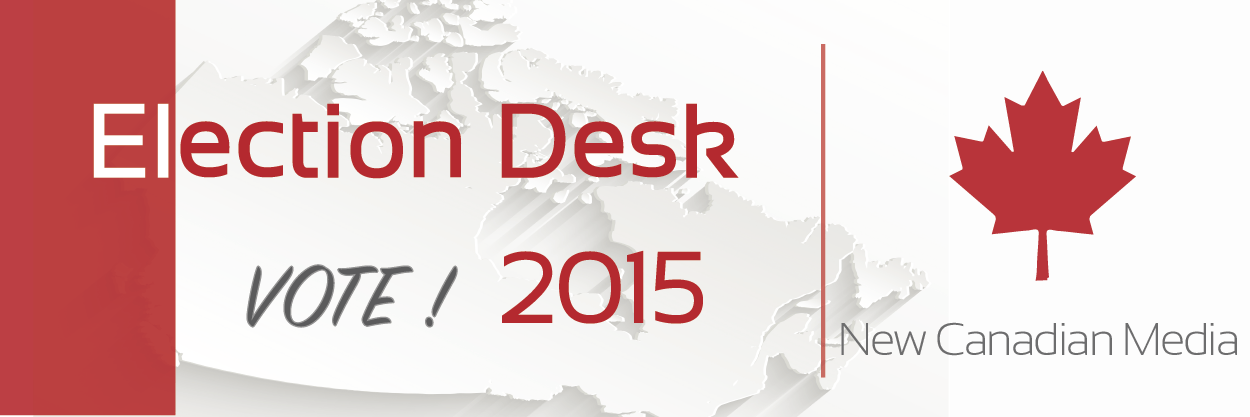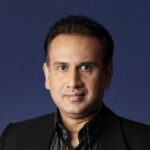 With campaigning picking up speed for the October 19 federal elections, a dipstick poll on how new Canadians view the unfolding political battle revealed reactions ranging from mild enthusiasm to clear preferences and opinions.
With campaigning picking up speed for the October 19 federal elections, a dipstick poll on how new Canadians view the unfolding political battle revealed reactions ranging from mild enthusiasm to clear preferences and opinions.
While it would be presumptuous to assume that one can draw any conclusions from an informal survey, it does give an idea about the issues new Canadian communities expect political parties to address.
Areas that clearly emerge as key concerns include education and the future prospects for children and jobs.
“Personally, I am most concerned about education, medical and environmental policies,” says Dawn Leung, who uprooted herself and her family about a decade ago from Hong Kong to lay down some roots in the Greater Toronto Area (GTA) city of Markham.
Since their arrival, Leung and her husband added two children to their family and she is constantly seeking reassurance that their decision to emigrate was not in vain.
“I wish serious matters such as sex education are not left at the level of school boards to decide,” says Leung. “There must be intervention from the federal level and the application of policy at a national level, as many parents like myself are not satisfied with how things are implemented at the provincial level.”
“How the government will be able to create as well as improve the job opportunities … health care issues, retirement or pension plan … are all key issues.”
Chris D’Souza, who moved to Canada after a stint in the Middle East, has economy on the mind.
“How the government will be able to create as well as improve the job opportunities especially during a downturn, health care issues, retirement or pension plan – how middle income as well as low income Canadians can have a secured retirement once they finish their work career – are all key issues,” he says.
Naresh Khanna, who immigrated about 10 years back and works out of Aurora, Ont. as a business consultant, echoed D’Souza’s sentiments. Enthusiastic about the coming elections, he said he was very interested in federal politics as it has a direct impact on the economy and his standard of living.
Sangeeta Gandhi, who has been in Ontario for a decade and a half bringing up her two daughters, is most concerned about the dim prospects of her children landing jobs they have trained for.
Gandhi’s older daughter has trained to be a school teacher, and without any vacancies opening up, she feels that she is spinning her wheels for too long in admin positions at the school board.
“We need a change in the right direction.”
“I am not sure of the logic behind allowing senior teachers to keep getting extensions in their jobs or delay retirement. The result is no new vacancies open up. And when they do, there are far too many certified new teachers vying for a limited number of positions. I feel that the government needs to look at this more closely.”
“We need a change in the right direction,” says Haydar S., originally from Iraq and now resident of Cockeysville after having arrived in Canada six years ago. His reference to change was influenced by New Democratic Party (NDP) leader Tom Mulclair, who he says has impressed him more than the other leaders.
Perceptions of the parties
Haydar says he feels that immigrants will warm up to the NDP as the party “actually supports policies that are pro-immigrants.”
So does any one party or parties come across as being more sensitive to the needs of immigrant communities? Responses seem to depend on the overall perception an individual has of parties and their leaders at this stage.
Leung believes that frequent policy changes by the ruling Conservatives have made it increasingly hard to immigrate and acquire citizenship. She clearly wants to vote against the Conservatives, but is as yet undecided on which other party to support.
Gandhi is skeptical about any one party being able to change the fortunes of immigrants drastically. “All parties are about the same,” she says.
Khanna, a Conservative supporter, believes the ruling party would be better for immigrants.
“A strong economic platform, with a vision for stable economic growth is important to keep the Canadian economy humming, which in turn is beneficial for all immigrants – new and established,” he explains.
D’ Souza too was clear about the party he would support.
“[I]t is the Liberal party that takes the time and effort to address issues related to immigrants.”
“It was the Liberals who liberalized Canadian immigration system and opened the doors for people from developing countries. And it is the Liberal party that takes the time and effort to address issues related to immigrants.”
Where the parties stand
While information on where the parties stood on macro issues was easily available, it becomes more opaque when it comes to policies directly affecting new Canadians.
Leung relies on Chinese language radio channels, print media and direct mail as her source for news. Gandhi, on the other hand, is looking out for more information and is ready for the upcoming election blitz from mainstream news sources.
“As the election campaigning is just kicking off I am sure I will be bombarded with messages between now and voting day,” says Khanna.
Haydar is keen to jump into some poll-related action. Having helped the team that canvassed for Olivia Chow when she ran to become Toronto’s mayor, he believes he has reasonable insights into what makes a candidate more appealing to the New Canadian community.
While unwilling to share his insights, he is ready to help out the NDP if asked.
“I wish political parties desist from negative advertising and instead try to woo the electorate based on issues and key policy platforms,” says D’ Souza.
Editor’s Note: Naresh Khanna and Chris D’Souza are pseudonyms as they did not want to be identified.
Abhijeet Ray is an advertising and media sales specialist, who has been a columnist on his areas of specialization in marketing magazines overseas. He has worked with multinational advertising agencies in India and South East Asia such as JWT, Lowe, Ogilvy, and is currently the Vice President, Media and PR at Ethnicity Multicultural Marketing Inc. Abhijeet has taught Advertising Management at Centennial College, and is an active member of the NCM-CAJ Collective.





